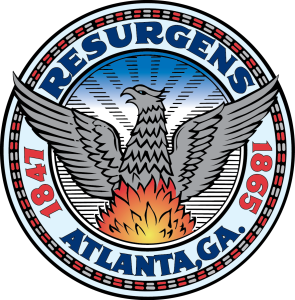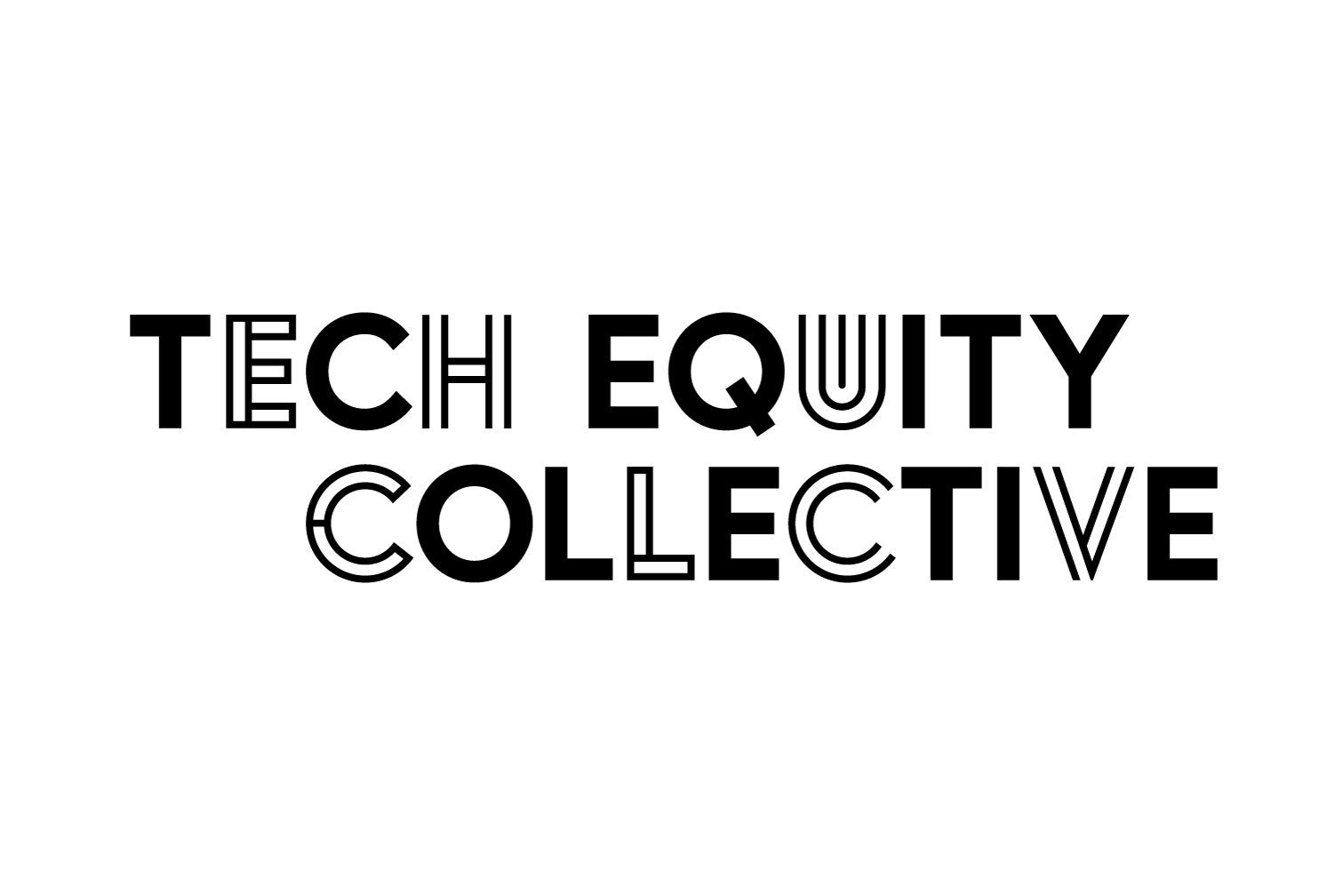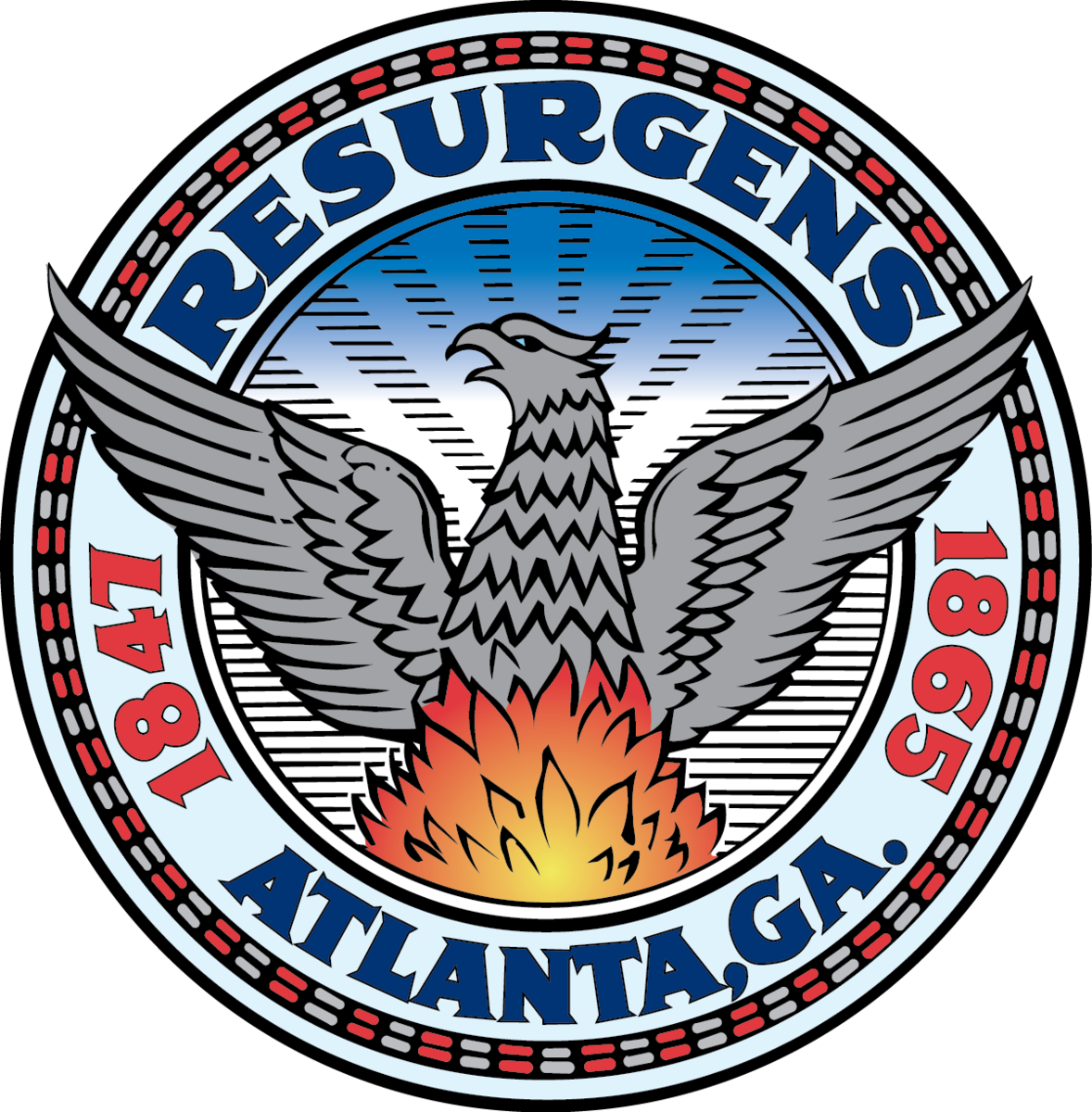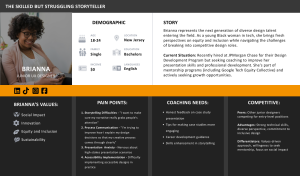
The results:
- 6 days from coaching session to job offer
- 90-minute session transformed scattered presentation into clear narrative
- JPMorgan Chase interviewer offered to personally mentor her
- From “I can’t explain my work” to confident storytelling
Why this matters: Technical skills get you to the final round. Presentation skills get you the job offer.
WHAT YOU’LL LEARN
This case study breaks down our rapid coaching methodology for high-stakes design presentations. You’ll see how we transformed a confused 25-minute presentation into a compelling story using proven frameworks.
The timeline:
- February 14: Initial coaching session
- February 18: Final interview presentation
- February 20: Job offer received
- 100% success rate using this coaching approach
Ready to transform your next presentation? Here’s the exact process we used.
THE SETUP
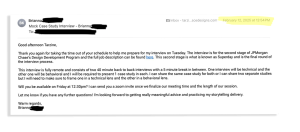
Brianna made it through JPMorgan Chase’s first interview round for their prestigious Design Development Program. She had the portfolio, the skills, and the drive.
But she faced a make-or-break moment: presenting her work effectively in just 25 minutes for the final interview.
Her challenge wasn’t her design ability, it was telling the story.
STEP 1: IDENTIFY THE CORE PROBLEMS
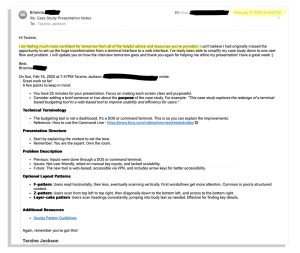
What you need to do: Diagnose presentation issues before jumping into solutions.
How we did it: During our February 14 coaching session, we identified four critical gaps in Brianna’s presentation approach.
The framework: Look for these presentation killers:
- Missing narrative structure – Multiple storylines confuse audiences
- Personal vs. professional focus – Wrong emphasis for business context
- Time management issues – Rushing through without strategic pauses
- Delivery problems – Run-on sentences prevent dialogue
Your action: Record yourself presenting and identify which of these four issues apply to your presentation.
Pro tip: The most common mistake is trying to show everything you did instead of telling one clear story.
STEP 2: ALIGN WITH BUSINESS REQUIREMENTS
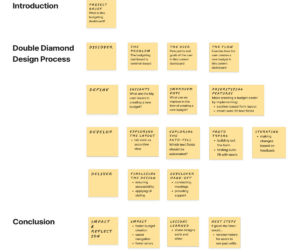
What you need to do: Match your presentation structure to the role requirements before refining content.
How we did it: We analyzed JPMorgan Chase’s job description and mapped Brianna’s process to their required competencies: user research, iteration, testing, solution, impact, and reflection.
The insight: Her original process (empathize → ideate → prototype → test → deliver) didn’t align with their framework. This disconnect would signal misfit during evaluation.
Your action:
- Get the job description for your target role
- Find their design process requirements
- Map your presentation structure to their language
- Use established frameworks (Double Diamond, Design Thinking) rather than personal methods
Pro tip: When companies list “required qualifications,” use their exact terminology in your presentation.
STEP 3: SIMPLIFY THE NARRATIVE STRUCTURE
What you need to do: Focus on one user story instead of multiple perspectives.
How we did it: Brianna’s original presentation jumped between four different storylines: her personal journey, the admin’s perspective, the analyst’s workflow, and an undefined design process. We simplified to focus solely on the budget analyst’s experience.
The framework:
- Before: Multiple user personas and complex approval workflows
- After: Single user focus with clear problem → solution progression
- Result: Coherent story that audiences can follow
Your action: Choose your primary user and build the entire presentation around their journey. Mention other stakeholders only when necessary for context.
Pro tip: If you can’t explain your project to someone outside your team in 2 minutes, your story is too complex.
STEP 4: RESTRUCTURE FOR TIME CONSTRAINTS
What you need to do: Build strategic pauses and interaction points into your presentation flow.
How we did it: We restructured Brianna’s 25-minute presentation with deliberate pacing:
- Temperature checks after each major section
- “Any questions so far?” prompts to create dialogue
- Strategic slide transitions with brief pauses
- Focus on overview rather than exhaustive detail
The strategy:
Introduction (2 minutes) → Problem Definition (3 minutes) →
Process Overview (4 minutes) → Solution Highlights (12 minutes) →
Impact & Next Steps (3 minutes) → Q&A (1 minute buffer)
Your action: Time each section of your presentation and build in question breaks every 3-4 minutes.
Pro tip: “You are the expert. Own the room. Every time you change slides, pause and ask, ‘Any questions so far?’ That turns your presentation into a conversation.”
STEP 5: FOCUS ON BUSINESS IMPACT
What you need to do: Emphasize measurable outcomes over design process details.
How we did it: We shifted Brianna’s focus from “here’s what I designed” to “here’s the business problem I solved.” Her project transformed a terminal-based budgeting system into a web-based solution, but she was getting lost in technical details.
The reframe:
- Before: Feature-focused presentation about interface improvements
- After: Business-focused story about efficiency and user experience gains
- Key insight: Government budgeting affects real people and projects
STEP 6: PRACTICE DELIVERY TECHNIQUES
What you need to do: Master pacing, confidence, and professional communication during high-pressure situations.
How we did it: We worked on specific delivery improvements:
- Pacing: Insert pauses between major points
- Confidence: “Own the room” mindset and expert positioning
- Interaction: Turn presentation into conversation through questions
- Recovery: Handle unexpected issues professionally
The transformation: Brianna went from “anxious and scattered to focused and confident” in our 90-minute session.
Your action: Practice your presentation with someone who knows nothing about your project. If they can’t follow the story, simplify further.
Pro tip: Technical communication issues often signal readiness concerns to interviewers.
THE RESULTS: FROM INTERVIEW TO OFFER
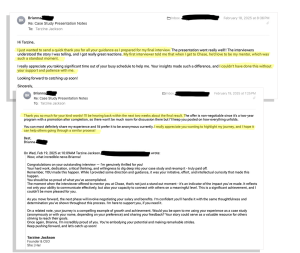
February 18 – The Presentation Brianna delivered her refined presentation using our coaching framework. The interviewers understood her story and gave positive reactions throughout.
The standout moment: Her interviewer said, “When you get to Chase, I’d love to be your mentor.”
February 20 – The Offer JPMorgan Chase extended a job offer for their two-year Design Development Program.
The complete timeline: 6 days from coaching session to job offer.
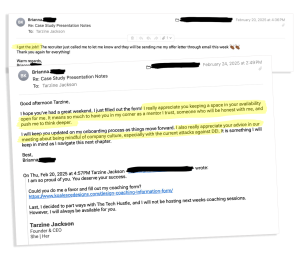
THE METHODOLOGY BEHIND THE SUCCESS
This coaching approach applies proven business communication principles to design presentations:
The process:
- Diagnose core issues before suggesting solutions
- Align with business requirements using their language
- Simplify narrative structure to one clear story
- Optimize for time constraints with strategic pacing
- Focus on business impact over design details
- Practice delivery techniques for confidence
Why it works: Design presentations succeed when they follow business communication best practices, not design portfolio conventions.
YOUR REPLICATION CHECKLIST
Before your presentation:
Identify your four biggest presentation weaknesses
Map your process to the company’s stated requirements
Choose one primary user story to focus on
Time each section and build in question breaks
Connect every design decision to business outcomes
Practice with someone outside your project
During your presentation:
Ask “Any questions so far?” after each major section
Pause between slides to let information process
Focus on business impact over design process
Handle complications professionally
Position yourself as the expert who owns the room
After feedback:
Adjust narrative structure based on audience response
Simplify any sections that caused confusion
Practice delivery timing until natural
WHAT THIS MEANS FOR YOUR CAREER
High-stakes presentations follow the same principles as good design: understand your user (interviewer), solve their problem (hiring decision), and communicate value clearly.
If you can apply this methodology:
- Interviewers will understand your work immediately
- You’ll build confidence through structured preparation
- Technical skills will translate into compelling stories
- Your success rate in final interviews will improve dramatically
The bigger picture: Presentation skills accelerate entire careers, not just individual interviews.
Ready to transform your next high-stakes presentation?
Need personalized guidance? Book a coaching session to practice your specific presentation and get real-time feedback.
ABOUT TARZINE JACKSON

Design Technologist, Mentor & Google Tech Equity Collective Coach
With 20+ years in tech and 10+ years coaching designers, I bring a direct, hands-on approach to guiding UX/UI designers, product developers, and tech professionals. My work spans UX design, frontend development, machine learning, and leading project teams from idea to delivery.
Experience & Focus:
- Tech & Design: UX, UI, product design, frontend development, and machine learning integration
- Mentorship: Product Design Mentor & Coach at ADPList and UX Lead at Women Who Code since 2014
- Teaching & Collaboration: Former instructor at Girls Who Code and founding member at Designed.org
Why I Coach: I founded Koalesce Designs to help professionals transform technical skills into career success. Every coaching session focuses on practical outcomes—like helping Brianna land her dream job in 6 days.
Coaching Philosophy: Technical excellence gets you to the final round. Communication skills get you the offer. I help bridge that gap through proven frameworks and direct feedback.
Ready to accelerate your career through better presentations? Let’s work together.
Certifications: Women-Owned Small Business (WOSB) | State & Government-Approved Contractor
Coaching Testimonial
Amazing!
She is straightforward and direct with her analysis. She quickly zeros in on blind spots and missed details.
Working with Tarzine was a turning point for me. Her expertise, practical advice, and approach helped me understand what I needed to do to enhance my portfolio.

An insightful discussion on how to turn dreams into goals.
My call with Tarzine was very insightful and allowed me to refocus my job hunting strategy with tips on how to optimize both my portfolio and resume.
Top-notch Designer and Career Coach!
If you’re considering working with Tarzine, I highly recommend it. Her subject matter expertise is second to none, and she truly cares about the success of her students and clients.
Broad Organizational Knowledge
We talked of everything from corporate structure to penetrating organizational networks for getting event attendees. Tarzine has such broad and deep knowledge of business models and such, that it allows… Read more “Broad Organizational Knowledge”
Hands Down, Best Decision Ever
What truly sets Koalesce Designs apart is their ability to combine strategic vision with practical execution. Their design solutions not only addressed a major challenge but also played a pivotal role in transforming the food ecosystem.
You Need Tarzine on Your Team
Tarzine’s wide wealth of knowledge and expertise has transformed the way I do business and approach client projects. With her dedication to the facts, endless researching, and insights, I know… Read more “You Need Tarzine on Your Team”
Mentor session on ADPList
Thank you so much for your time and feedback on my portfolio and resume. This is the most detailed and honest review I have gotten and I am sure it… Read more “Mentor session on ADPList”
Tarzine is Amazing
Tarzine helped me feel confident in interviews as well as helped me narrow down my resume to make it more competitive for others. I am grateful for what she has… Read more “Tarzine is Amazing”
Knowledgeable Experts
Tarzine Jackson is one of the most knowledgeable experts in design technology I’ve ever met. However, her true brilliance shines in one-on-one sessions with clients, where she crafts personalized strategies… Read more “Knowledgeable Experts”


